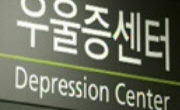The rapid aging of the population is strongly manifested in the economic difficulties and loss of role of the middle-aged and elderly, retirement and morality, and complex difficulties such as illness, which are strongly expressed in the alienation an...
http://chineseinput.net/에서 pinyin(병음)방식으로 중국어를 변환할 수 있습니다.
변환된 중국어를 복사하여 사용하시면 됩니다.
- 中文 을 입력하시려면 zhongwen을 입력하시고 space를누르시면됩니다.
- 北京 을 입력하시려면 beijing을 입력하시고 space를 누르시면 됩니다.

사회적 배제의 다차원 특성이 중⋅고령 노인의 우울에 미치는 영향 = The Effects of Multidimensional Characteristics of Social Exclusion on Depression in Middle and Older Adults
한글로보기부가정보
다국어 초록 (Multilingual Abstract)
An empirical analysis of middle-aged and elderly people in Incheon City and Gyeonggi-do indicates that economic and political exclusion factors, which are sub-factors of social exclusion, affect depression. We found that the degree of cognitive depression in the elderly decreased as exclusion and political exclusion decreased, and we presented the results of this analysis in the main text.
Suggestions are as follows. First, a multidimensional analysis of subfactors for social exclusion was performed and found to be statistically significant for economic and political exclusion, but not for sociocultural exclusion. This can be used as basic data and to raise the need for a multi-dimensional approach to lower the degree of depression in the elderly.
Second, in terms of the mental health of the elderly, various efforts are needed to ameliorate the phenomenon of economic and political exclusion through changed policies. The most important thing is to create a lifelong health management system for the elderly who live long and healthy, and to develop, implement, and implement various programs that can reduce social exclusion in the central and local governments, social welfare institutions, and local communities. is important.
The rapid aging of the population is strongly manifested in the economic difficulties and loss of role of the middle-aged and elderly, retirement and morality, and complex difficulties such as illness, which are strongly expressed in the alienation and depression of the elderly, suicide, and social exclusion. We found many previous studies that pointed out the direct influence relationship between depression and the degree of depression in the elderly. was necessary.
An empirical analysis of middle-aged and elderly people in Incheon City and Gyeonggi-do indicates that economic and political exclusion factors, which are sub-factors of social exclusion, affect depression. We found that the degree of cognitive depression in the elderly decreased as exclusion and political exclusion decreased, and we presented the results of this analysis in the main text.
Suggestions are as follows. First, a multidimensional analysis of subfactors for social exclusion was performed and found to be statistically significant for economic and political exclusion, but not for sociocultural exclusion. This can be used as basic data and to raise the need for a multi-dimensional approach to lower the degree of depression in the elderly.
Second, in terms of the mental health of the elderly, various efforts are needed to ameliorate the phenomenon of economic and political exclusion through changed policies. The most important thing is to create a lifelong health management system for the elderly who live long and healthy, and to develop, implement, and implement various programs that can reduce social exclusion in the central and local governments, social welfare institutions, and local communities. is important.
동일학술지(권/호) 다른 논문
-
『개자원화전(芥子園畫傳)·매보(梅譜)』의 부호 표현 분석과 의의
- 동방문화대학원대학교 문화예술콘텐츠연구소
- 姜易藝
- 2023
- KCI등재
-
- 동방문화대학원대학교 문화예술콘텐츠연구소
- 왕완난
- 2023
- KCI등재
-
- 동방문화대학원대학교 문화예술콘텐츠연구소
- 비쇼리
- 2023
- KCI등재
-
노인의 정보화기기 활용 수준이 삶의 만족도에 미치는 영향
- 동방문화대학원대학교 문화예술콘텐츠연구소
- 윤경동
- 2023
- KCI등재




 KCI
KCI 코리아스칼라
코리아스칼라






